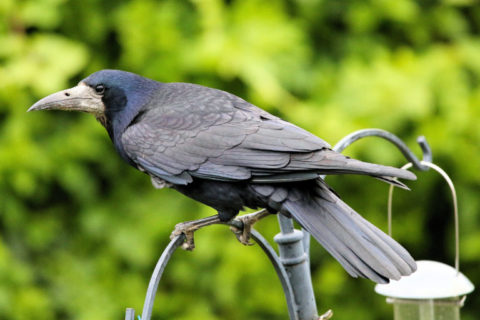I always assumed that the chess piece we know as a “rook”, which resembles a castle was named for the bird, there being some link with ravens in towers and turrets, perhaps.

But, it’s nothing of the sort…
Â
The word was coined around 1300 and comes from Old French “roc”, which in turn comes from the Arabic “rukhkh”, and that from a Persian word “rukh”, which may in turn come from the Indian name for the piece, “rut”, from the Hindi “rath” meaning “chariot.”
Of course, if I’d known my chess history, I’d have known about the mediaeval game “shatranj” where the rook symbolizes a chariot. But, it might also represent a siege tower after that. The original Indian game had chaturanga meaning also meaning chariot, but the modern version of that game calls those pieces “elephant”. Some people call the rook a castle and “castling” is a chess manoeuvre involving two pieces (king and rook) swapping relative positions in a single move. Does any of that have anything to do with the name of the old coaching inn, “The Elephant and Castle”, for which the area of South London is named? Probably not. Although the E&C statue is of an elephant carrying what looks very much like a chess rook on its back and that is an early gaming piece in chess evolution.
Anyway, he name of the bird, on the other hand, the Rook, comes from Old English hroc, and is perhaps onomatopoeic of the bird’s raucous call, which is something of a croak, a word that comes from the Sanskrit “kruc” meaning to cry out. Moreover, a rook is a 16th century word for someone who cheats at cards or dice. The word “crook” itself, which you might think is somehow related, was originally a word specifically for a devilishly dishonest trick.
Of course, a word that was bandied about a lot during the US presidential elections was “crooked”, a term pertaining to someone cheating, but also simply meaning bent as in a shepherd’s crook. But, the word bent also means crooked in both senses, but someone hell-bent is determined to get what they want, perhaps by hook or by crook.
Don’t you just love etymology?